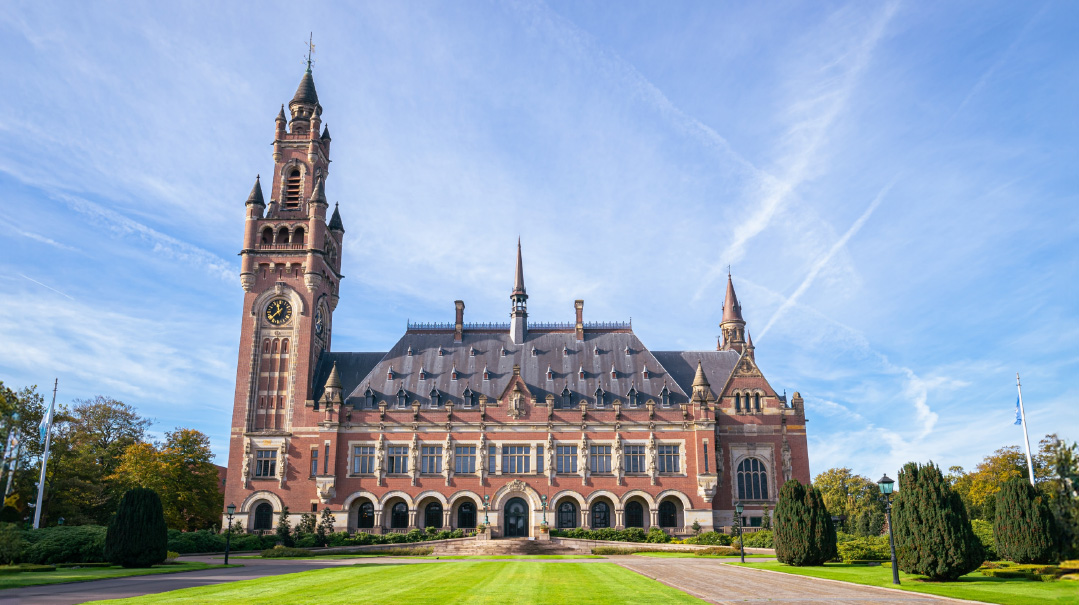Back to Business in Washington


With the midterm elections behind us, politicians can return to Washington, D.C., and start governing again. For President Trump, that means dealing with personnel issues in the White House, putting his legislative priorities in order, and buckling up for a likely end to the Mueller investigation. Here are a few of the most pressing issues on the president’s agenda.
Big Changes at the Top?
You don’t have to be a political genius to understand that Trump’s relationship with his defense secretary, James Mattis, and his chief of staff, John Kelly, have soured. In an interview with 60 Minutes last month, Trump called Mattis “sort of a Democrat” — words that were taken as a slight. Kelly, by contrast, has reportedly considered leaving his position many times, and was recently seen outside the Oval Office in a full-on shouting match with National Security Advisor John Bolton. According to a report in Politico last week, other top officials on their way out may include Commerce Secretary Wilbur Ross, Secretary of the Interior Ryan Zinke, and Homeland Security Secretary Kirstjen Nielsen. Those close to Trump say that the president is interested in presenting the strongest possible cabinet ahead of the 2020 elections.
The End for Sessions and Rosenstein?
Trump regretted his pick for attorney general, Jeff Sessions, immediately after the former senator recused himself from overseeing the investigation by special prosecutor Robert Mueller. If the midterms were a time to bring the Republican Party together, post-elections might give Trump the opportunity to settle outstanding scores. Sen. Lindsey Graham’s name has been raised as a possible Sessions replacement, but it’s hard to predict the mercurial Trump. Another law enforcement official who could see his end is Deputy Attorney General Rod Rosenstein. Though the two have reportedly reached an understanding, if Trump decides Rosenstein’s firing is politically expedient, the man overseeing the Mueller probe could also be looking for a new job in 2019.
What About that Fence?
The caravan of migrants heading toward the United States is a double-edged sword for the president. On the one hand, sending thousands of soldiers to the border and blaming the Democrats for the country’s immigration woes are a great way to fire up the Republican base. But what about now, after the midterms? Trump has promised to build a border wall but so far hasn’t produced results. In 2017, there was a decline in the number of illegal migrants crossing the border, but in 2018 there was an uptick. And while Trump could blame the Democrats on the campaign trail (even though Republicans held both houses of Congress), ahead of 2020 the elections, voters will expect him to notch an achievement on this front and not just cast blame on others.
And What About Mueller?
Which brings us to the most interesting question of all: Would Trump dare to fire Robert Mueller? The presidential elections are a full two years away, more than enough time for the news cycle to change multiple times over. Mueller is reportedly wrapping up his long inquiry into Russian interference in the 2016 presidential election and reportedly waited until after the midterms to release his findings. Would Trump make a political point with a dramatic dismissal?
Not likely. With the probe in its final stages, firing Mueller wouldn’t make much of a difference at this point. If the special prosecutor has any evidence to charge Trump, the fight between the two men will more likely take place in court.
Peace in the Middle East? How About Korea?
It seems that the administration has all but written its peace plan for the Middle East and is only waiting for an opportune time to publicize it. With the threat of early elections in Israel, post-midterms might be the best time. It will be interesting to see not only what the plan contains but also how personally Trump plans to involve himself in selling it to the skeptical parties.
On the other side of the world, negotiations haven’t progressed much in North Korea. Pyongyang continues to pile up obstacles and demands — for example, demanding a “peace agreement” of sorts before it concedes anything, and threatening to restart its nuclear program if sanctions are not lifted. Neither development is good news for Trump, though he still insists he wants to meet Kim Jong-un in the coming months. Either of these accomplishments — peace in the Middle East or a stabilization of the Korean peninsula — would be a meaningful talking point on the 2020 campaign trail.
Can Democrats and Republicans Agree on Anything?
Yes: infrastructure. Trump’s long dormant $1 trillion infrastructure spending plan could benefit both parties. Rehabilitating crumbling bridges, potholed roads, and an aging rail system are prized accomplishments for any candidate. Further, heading into a presidential election year, both parties likely want to show voters that they can work together for the greater good. Expect the bipartisan harmony to end there, however. Any legislation on immigration, health care, or taxes will be decided on party lines and bitterly fought.
(Originally featured in Mishpacha, Issue 734)
Oops! We could not locate your form.












